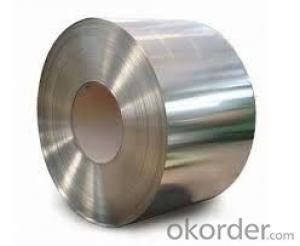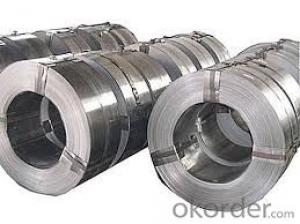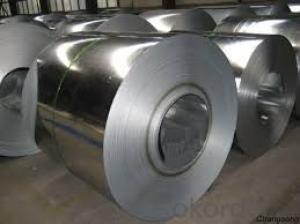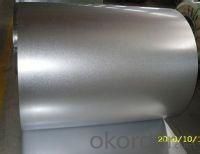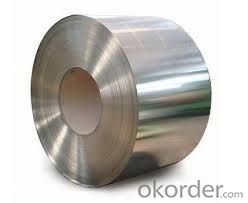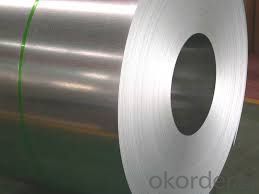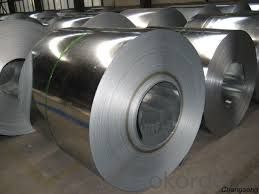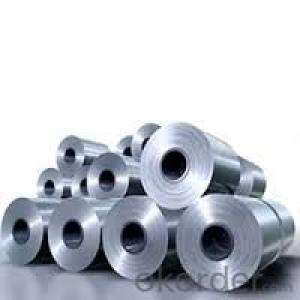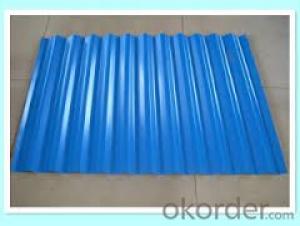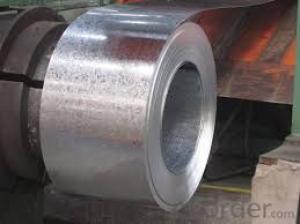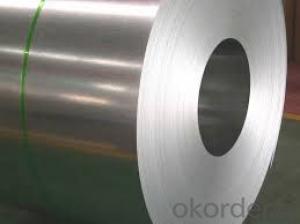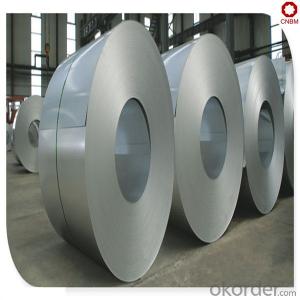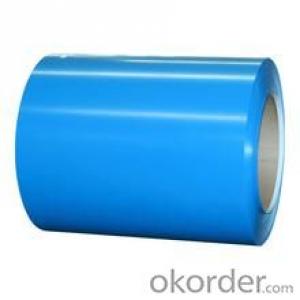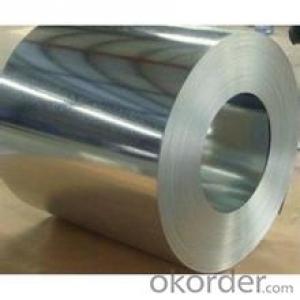Excellent Hot-Dip Galvanized/ Aluzinc Steel DX51D
- Loading Port:
- Nanjing
- Payment Terms:
- TT OR LC
- Min Order Qty:
- 30 m.t.
- Supply Capability:
- 5000000 m.t./month
OKorder Service Pledge
OKorder Financial Service
You Might Also Like
Description:
1.Mateials:SGCC,DX51D / DX52D /S250,280GD
2.Size:width:600-1250mm(900mm,1215mm,1250mm,1000mm the most common)
thickness:0.15-2.0mm
length:1000-6000mm,as your require
3.Zinc coating :60-180g( as required)
4.Coil id:508mm
5.Coil weight: 3-5MT(as required)
6. Surface:regular/mini/zero spangle, chromated, skin pass, dry etc.
Applications of our Galvalume Coil:
Galvalume Coil widely used for roofing products, It is also the ideal base material for Prepainted Steel Coil.
1. roofing
2. gutters
3. unexposed automotive parts
4. appliances
5. furniture
6. outdoor cabinetry
Hot-dip galvanized steel coils are available with a pure zinc coating through the hot-dip galvanizing process. It offers the economy, strength and formability of steel combined with the corrosion resistance of zinc. The hot-dip process is the process by which steel gets coated in layers of zinc to protect against rust. It is especially useful for countless outdoor and industrial applications.
- Q: What are the common methods of packaging steel coils for international shipping?
- The common methods of packaging steel coils for international shipping include using wooden crates or pallets, securing the coils with metal or plastic strapping, using moisture-resistant packaging materials, such as plastic or shrink wrap, and adding dunnage or cushioning materials to prevent movement or damage during transit. Additionally, steel coils may be packed in containers or onto flat racks for optimal stability and protection.
- Q: How are steel coils inspected for impact resistance using impact testers?
- To assess the impact resistance of steel coils, specialized machines called impact testers are utilized. These machines are designed to evaluate the coils' ability to endure impacts. The process involves subjecting the coils to controlled impacts and measuring the resulting deformation or damage. Initially, the steel coils are securely positioned and oriented on the impact tester. This ensures accuracy and consistency. The tester is equipped with a striking element, like a pendulum or falling weight, which applies a specific force upon impact. The element is aligned precisely with the steel coil for precise testing. Once the setup is complete, the impact tester is activated, and the striking element is released to impact the steel coil. The force of the impact is carefully controlled and measured to ensure consistency across multiple tests. The tester records various parameters, including applied force and impact duration. After the impact, the steel coil undergoes a thorough examination for visible deformation or damage. This includes checking for dents, cracks, or any signs of structural compromise. The extent of the deformation or damage is recorded and compared to predetermined acceptance criteria to determine if the coil passes or fails the impact resistance test. To gather additional data during testing, impact testers can be equipped with various sensors and cameras. High-speed cameras capture the impact in slow motion, allowing for detailed analysis of the coil's behavior. Strain gauges can also be attached to the steel coil to measure strain and stress experienced during the impact. In conclusion, the use of impact testers offers a reliable and standardized method for inspecting the impact resistance of steel coils. By subjecting the coils to controlled impacts and accurately measuring deformation or damage, manufacturers can ensure that their steel coils meet the required impact resistance standards for different applications.
- Q: How do the sandpaper grits compare with different coarse levels of steel wool? For example, I'm finishing a homemade entertainment center, and using a tinted polyurethane, and it says to use 000 grade steel wool, but mine is #3, could I use some sanpaper instead, and what grit?
- Steel wool and wax is for the final buff after the finish coat. Sanding will scratch the finish and should only be done before the finish coat. Steel wool and wax have been used as the final finish to remove rough areas and buff the finish for a long time.
- Q: How are steel coils priced and traded in the market?
- Steel coils in the market are priced and traded based on a variety of factors. The primary determinant is the current dynamics of supply and demand in the steel industry. When demand for steel coils is high, prices tend to increase, and vice versa. The cost of raw materials, such as iron ore and coal, is another crucial factor in determining the price of steel coils. Fluctuations in the prices of these materials can directly impact the pricing of steel coils. Furthermore, the price of steel coils is influenced by their quality and specifications. Coils with desirable characteristics, such as strength, corrosion resistance, or surface finish, may command a higher price in the market. Steel coils are traded through different platforms, including physical exchanges, futures contracts, and over-the-counter (OTC) markets. Physical exchanges allow buyers and sellers to trade steel coils by exchanging physical deliveries. Futures contracts, on the other hand, enable traders to buy or sell steel coils at a predetermined price and future date, providing a way to hedge against price fluctuations. The OTC market provides an alternative avenue for trading steel coils, where buyers and sellers negotiate and agree on prices directly without involving a formal exchange. This allows for flexibility and customization in trading, catering to specific requirements. In conclusion, the pricing and trading of steel coils in the market are influenced by factors such as demand and supply dynamics, raw material costs, quality specifications, and the availability of different trading platforms. It is a complex process that requires careful consideration of various factors to determine fair prices and facilitate efficient trading.
- Q: How are steel coils used in the production of building facades?
- Steel coils are used in the production of building facades as they are rolled into flat sheets and then cut into various sizes and shapes. These steel sheets are then formed, fabricated, and installed to create the outer layer of a building. The steel coils provide strength, durability, and a sleek, modern appearance to the facades, making them an essential component in the construction industry.
- Q: What are the main factors that affect the paint adhesion on steel coils?
- The main factors that affect paint adhesion on steel coils include surface preparation, cleanliness, and the presence of contaminants such as oil, grease, or rust. Other factors include the quality of the paint itself, the application method, and the curing process. Additionally, the type of steel and its surface condition can also influence paint adhesion.
- Q: What are the key factors affecting the strength of a steel coil?
- The key factors affecting the strength of a steel coil are the quality of the raw material used, the manufacturing process employed, the level of heat treatment, and the presence of any impurities or defects in the steel.
- Q: How are steel coils used in the production of steel containers?
- Steel coils are an essential component in the production of steel containers. These coils, made from flat-rolled steel, are used to create the main body of the container. Firstly, the steel coils are unwound and fed into a rolling mill, where they undergo a series of processes to shape and form the steel. This includes heating the coils to a specific temperature to make them more malleable and easier to work with. The hot coils are then passed through a series of rollers that gradually reduce their thickness and lengthen them to the desired size. This process is known as hot rolling. Once the steel coils have been rolled to the required thickness, they are then cooled and cut into sheets. These sheets are then further processed to remove any imperfections or irregularities, ensuring a smooth and uniform surface. This is done through processes such as pickling, where the sheets are treated with acid to remove any scale or rust, and cold rolling, where the sheets are passed through rollers at room temperature to achieve the desired thickness and surface finish. After the sheets have been cleaned and smoothed, they are then formed into the shape of the container. This is typically done through a process called stamping, where the steel sheets are pressed into a mold using a hydraulic press. The mold determines the shape and size of the container, and the steel sheets are pressed against it with immense force, resulting in the desired container shape. Once the containers have been formed, they undergo various finishing processes such as welding, painting, and coating to enhance their durability, appearance, and resistance to corrosion. These final touches ensure that the steel containers are of high quality and meet the required standards for their intended use. In summary, steel coils play a crucial role in the production of steel containers by providing the raw material from which the containers are formed. Through a series of processes, the steel coils are shaped, cut, and formed into sheets, which are then further processed and transformed into the desired container shape. The result is a durable and reliable steel container that can be used for various applications across industries.
- Q: Heard some steel companies like TATA Steel and JSW are in good performance. can some one suggest me if its good time to invest in steel industry ?
- I feel metal stocks can give some return now if you invest.
- Q: How are steel coils used in the production of automotive components?
- Steel coils are used in the production of automotive components as they are rolled into flat sheets and then further processed to create various parts such as body panels, frames, and chassis. These coils provide the necessary strength and durability required for automotive applications, ensuring the safety and performance of vehicles.
Send your message to us
Excellent Hot-Dip Galvanized/ Aluzinc Steel DX51D
- Loading Port:
- Nanjing
- Payment Terms:
- TT OR LC
- Min Order Qty:
- 30 m.t.
- Supply Capability:
- 5000000 m.t./month
OKorder Service Pledge
OKorder Financial Service
Similar products
Hot products
Hot Searches
Related keywords

